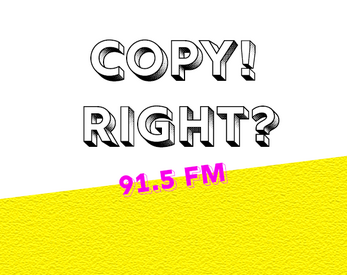
Copy! Right?
Want to talk about Copy! Right? Join the conversation on our Discord.
A brand new mini detective game about song-writing.
Folk-Pop Singer-Songwriter Dan Shea is being sued by three artists for stealing their work. See if you can stop the steal.
From the OwlSkip extended Universe.
Featuring:
Hattie Snooks. Fiona Thraille. Emily Snyder. Harry Harris. Daniel Duke
Download
Download NowName your own price
Click download now to get access to the following files:
Copyright PC 103 MB

Comments
Log in with itch.io to leave a comment.
such an interesting game! terrible day for me to be completely tone deaf.
I’m just now discovering your detective games. The audio focused approach to this one is so unique and I’m blown away that these are not real artists!
What was the inspiration for each artist? My guess would be Dan Shae = Ed Sheeran, Lara Monetz = Lana Del Rey, Kimi Svenson = Ke$ha or La Roux, and James Pound = Vance Joy?
Apparently there’s a real band called Dan + Shay, coincidence?
Are these songs available anywhere?
1 & 2 yes, Kimi is Zara Larson, James is like George Ezra
Coincidence
Nope!
The game is, of course, about Sheerans constant Copyright cases
Amazing, amazing work, an exercise of slow reading and attention, in a world of fastness and superficial reading of everything.
This kind of investigative game, especially this one that estimulates the ear-reading (as Family especially does too), looks to me very related to the "indiciary paradigm", that the historian Carlo Ginzburg analyzes. Have you heard of him, Tim?
Sorry for the bad english. Cheers from a brazilian history teacher fan of your work!
I have not! Would you care to explain it me?
Sorry for not answering you. My computer broke, and I didn't see your reply until now. Well, about the "indiciary paradigm": Giznburg was one of the founders of a method and way to look to the past, that was named microhistory. He developed this concept of "indiciary paradigm" (in english translations, this concept appear as "evidential paradigm") to indicate how humans perceive reality trought evidences, remnants of the past. He shows how hunters, doctors, detectives and historians all use this paradigm in their work, dealing with vestiges that indicate a past reality, not directly acessible. I think that in your work, you put the player in a state of detective look, making us use this kind of abilities and way of thinking to answer questions and know more.
In my previous comment I also mentioned that the game is an exercise of slow reading. This idea I also take up from Ginzburg's work. He talk a little bit about this in this video:
I'm just a simple history teacher and historian, but I think that the reading of Ginzburg's texts may contribute to this vision and method of making games that you are developing. Thank you so much!
-- The concept of evidential pardigm was developed in the chapter "Clues: roots of an evidential paradigm" of the book "Myth, Emblems, Clues".
You can acess the PDF here: https://vdocuments.mx/41-carlo-ginzburg-myths-emblems-clues-cap-5pdf.html?page=1
We are excited to discuss Copy! Right? on Indie Game Club! Indie Game Club is like a book club, but for indie games!
Twitch: https://twitch.tv/potionsandpixels
Dang, can't play the thing. Doesn't scale properly. Full screen doesn't put the whole thing on my screen.
I have the most common screen resolution on earth: 1366 x 768.
Sounds nasty